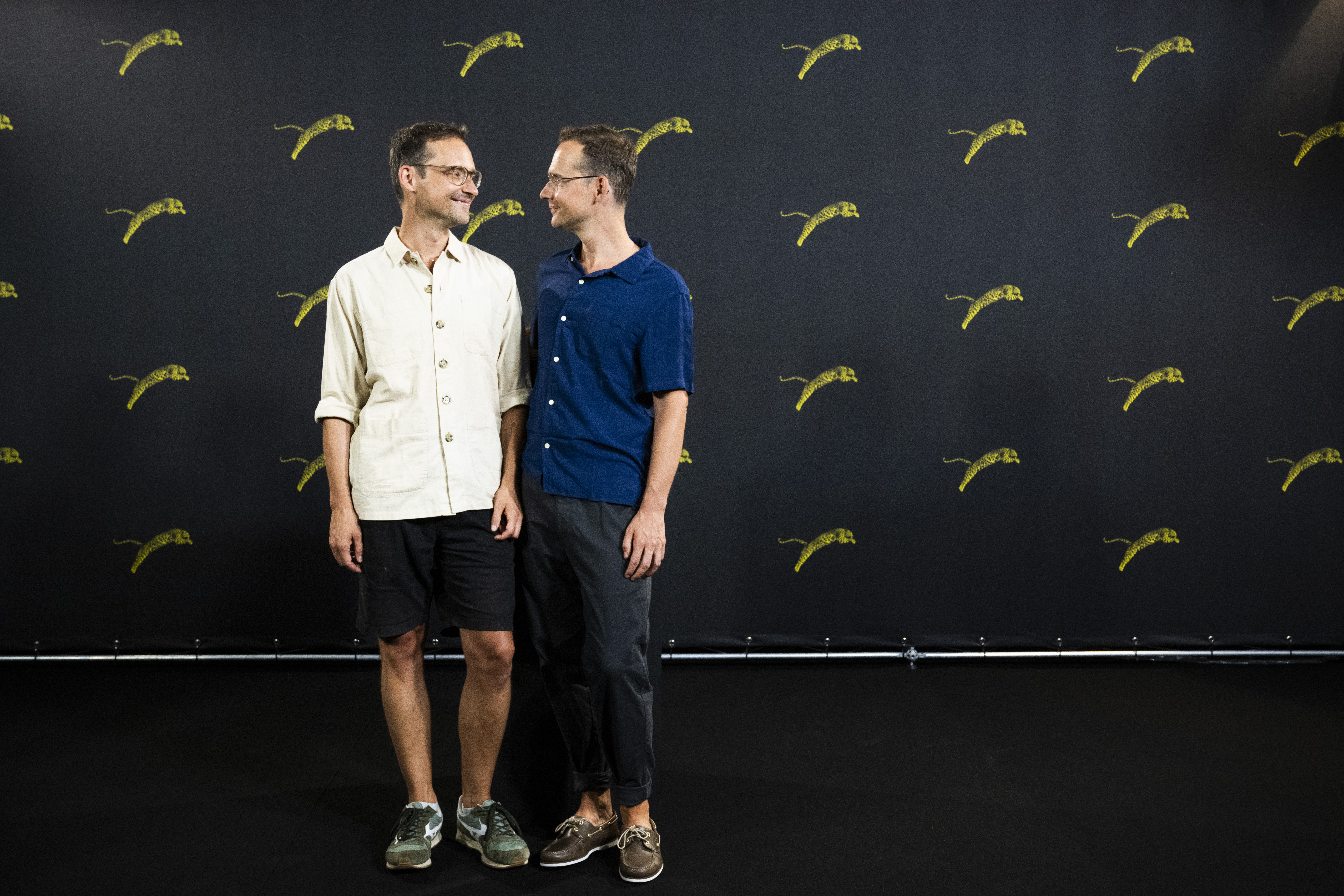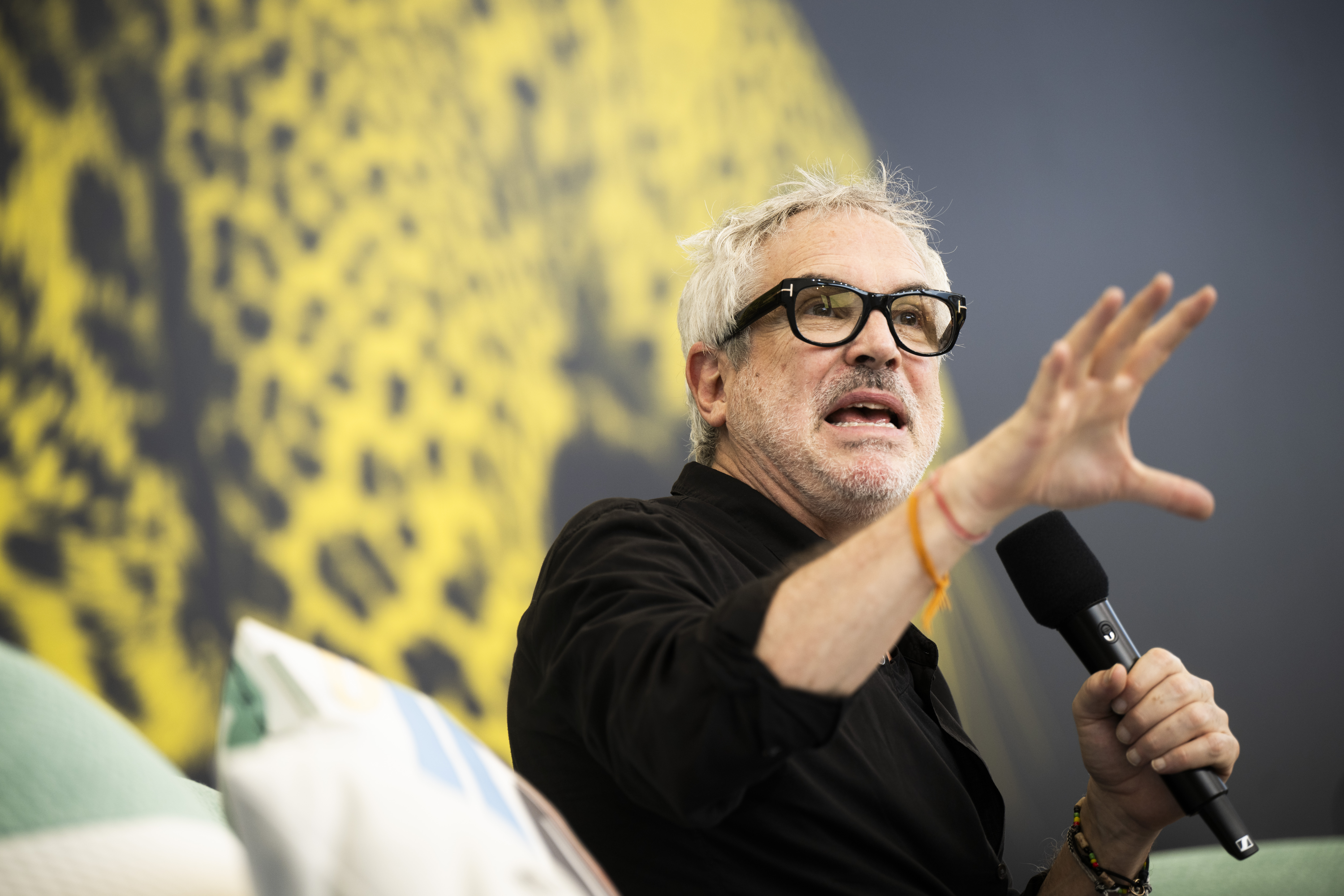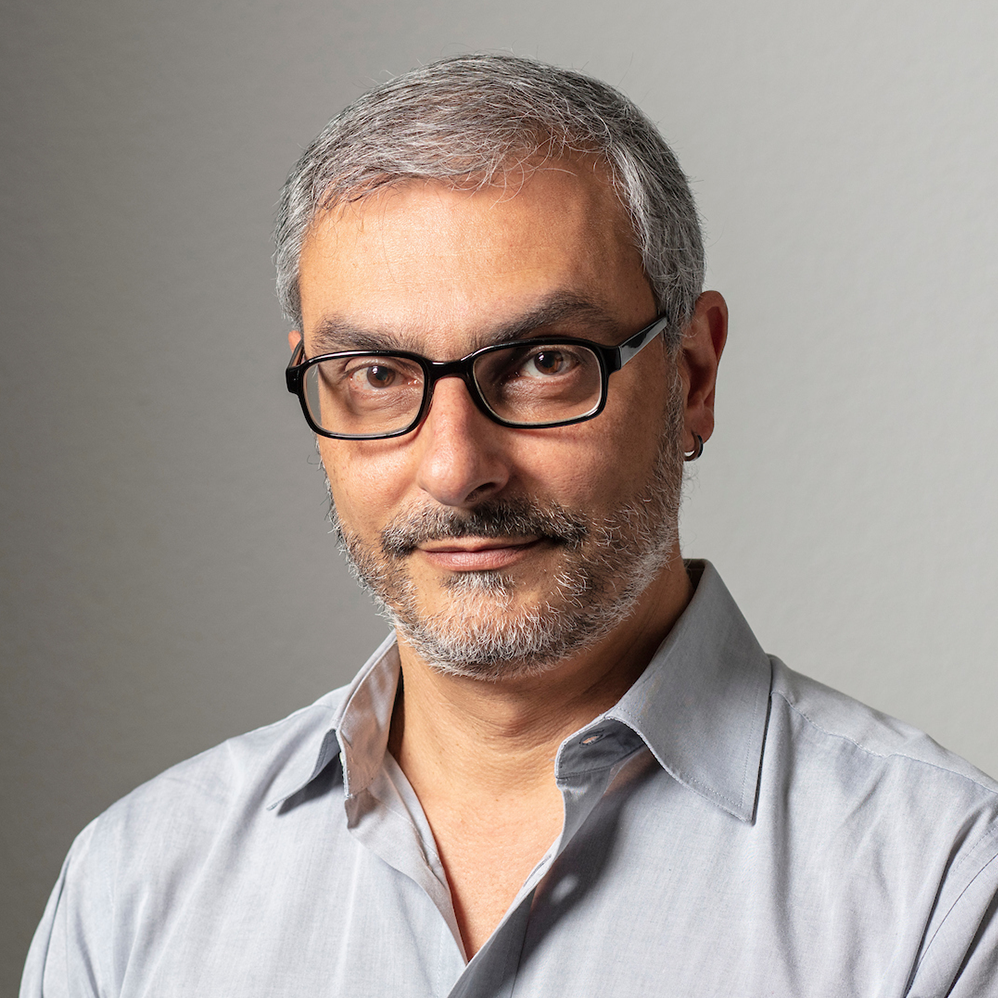Debutantes are big winners at Locarno Film Festival

The Locarno Film Festival this year confirmed its long tradition as a showcase of new global talent: most of the main awards went to young women, Lithuania stole the show and Swiss cinema awed critics.
In 2018 Locarno was the first Swiss film festival to sign a pledge for gender equality and diversity in its programme. Despite the festival’s best intentions, statistics defy this commitment since only 27.4% of all feature submissions, and 35% of the films selected, were directed by women.
The awards, though, inverted the odds. The Lithuanian Akiplėša (Toxic), director Saulė Bliuvaitė’s first feature, took the Pardo d’Oro (Golden Leopard) while the Special Jury Prize went to the Jordanian-born Austrian film maker Kurdwin Ayub for Mond (Moon), her second feature.
Another youthful Lithuanian (a man), Laurynas Bareiša, took the prize for best director for Seses (Drowning Dry), his second feature.

The Pardo d’Oro was a real surprise – for the specialist press, at least. In a poll conducted by the festival’s daily Pardo among international film critics present at the festival, including your correspondent, only one of the 17 respondents put their bets on Akiplėša.
In fact, this year’s selection for the main competition was one of the most challenging of the last editions, with many newcomers, no clear favourites, and very few established names, except maybe for the British Ben Rivers (with Bogancloch) and the Korean Hong Sangsoo (with By the Stream) – both highly regarded mainly for their independent film making and well known mostly in cinephile circles.
But even if the wow factor was missing a bit this year – new, fresh faces emerging in the film world are always a boon, especially when bucking the current crowd-pleasing trend of many film festivals.
Swiss doing well
It was a remarkable festival for the Swiss film scene, too. In the international competition it was represented by Der Spatz im Kamin (The Sparrow in the Chimney), by the twin brothers Silvan (producer) and Ramon Zürcher. It’s a family drama that closes a trilogy initiated with their first feature, Das merkwürdige Kätzchen (The Odd Cat, 2013), followed by Das Mädchen und die Spinne (The Girl and the Spider, 2021).
Curiously, Swiss film critics overheard by SWI swissinfo.ch were notably annoyed by the film, while many of their foreign peers, from China, Germany, Turkey and the UK, were much more generous. This contrast may tell a thing or two about how the Swiss view themselves in the cinematic mirror.
The film will be released in Swiss cinemas in September, and maybe then its effect on the home audience may be more accurately felt.

In another competition at Locarno, Cineasti del Presente, featuring debut or second-time film makers, Denise Fernandes, with her debut film Hanami, took the Best Emerging Director Award. Born in Lisbon of Cape Verdean parents and raised in Switzerland (more precisely, in Locarno), Fernandes studied film in Lugano and in Cuba and began to attract attention with her short-films Bread Without Jam (2012) and Idyllium (2013).
Fernandes’ life and professional trajectory curiously mirror another young film maker who had charmed audiences in previous Locarno festivals but was absent this year. Basil da Cunha was born in Switzerland, son of Portuguese immigrants in the French-speaking city of Morges, and has already made two films (besides shorts) featuring the Cape Verdean community in the Reboleira, Lisbon’s biggest shanty town.
A new hope
Da Cunha and Fernandes are just two examples of the enormous potential offered to Swiss cinema by a new generation of filmmakers with migrant backgrounds. Which brings us to another Swiss highlight in Locarno, The Miraculous Transformation of the Working Class into Foreigners, a documentary by the Zurich film maker Samir.
Son of an Iraqi father and Swiss mother, Samir, 69, is already an established name in the local film scene. His career and movies delve in the issues of migration, diaspora, allegiance, and identity.
With his new documentary, Samir expands his own personal experiences as an ‘alien citizen’ and brings to the surface the plight of the Italian Gastarbeitern (guestworkers) in Switzerland, from the post-War years to their eventual acceptance as human beings by the Swiss establishment many decades later.
All screenings of the film were sold out. The local press of the Italian-speaking canton of Ticino, as well as the Italian media, lavished the documentary with rave reviews. But curiously, the film hardly appears to exist so far for the Swiss German media.
Considering that the grim realities of the Italian immigration are still a taboo (especially in the German-speaking part of the country), that may not come as a surprise. And, like the local reaction to the Sparrow in the Chimney, it may also shed a light on the way Swiss audiences look at themselves, and their history, in the mirror of the screen.
The talk of the town
Between screenings, 12 Swiss cultural institutions chose Locarno to make an announcement decrying a recent decision of the Federal Ministry of Foreign Affairs to cut by almost half the funds dedicated to the development and production of artistic (including film) projects from the global South and East.
Among the 12 organisations directly affected by the cuts are the Zurich Theater Spektakel, the most prestigious international event for performing arts in Switzerland, the fostering platforms artlink and Visions Sud Est, as well as the Locarno Film Festival itself, with its Open Doors program.
Open Doors has for almost 20 years helped film makers and producers from Asia, Africa, Latin America and Eastern Europe to connect with their peers in the wealthier Europe, literally opening the doors for new possibilities of funding, development, and technical expertise.

One of the star guests of this year’s festival, the Mexican Oscar-winning filmmaker Alfonso Cuarón (Gravity, Roma, and Harry Potter) publicly called on the Federal Council to reconsider the cut in cultural funding from the Swiss Agency for Development and Cooperation (SDC).
Interviewed by Swiss television channel SRF, Cuarón said that film production funds such as Visions Sud Est are fundamental to the careers of many young filmmakers.
At the presentation of his film Shambhala, in front of a public of roughly 8,000 in Locarno’s Piazza Grande open-air screen, Nepali director Min Bahadur Bham made an emotional plea against the cuts, reminding the audience – and the heads of the SDC, who were present – that if it wasn’t for the SDC funds, his film would never have been made.
Edited by Mark Livingston

In compliance with the JTI standards
More: SWI swissinfo.ch certified by the Journalism Trust Initiative









You can find an overview of ongoing debates with our journalists here . Please join us!
If you want to start a conversation about a topic raised in this article or want to report factual errors, email us at english@swissinfo.ch.